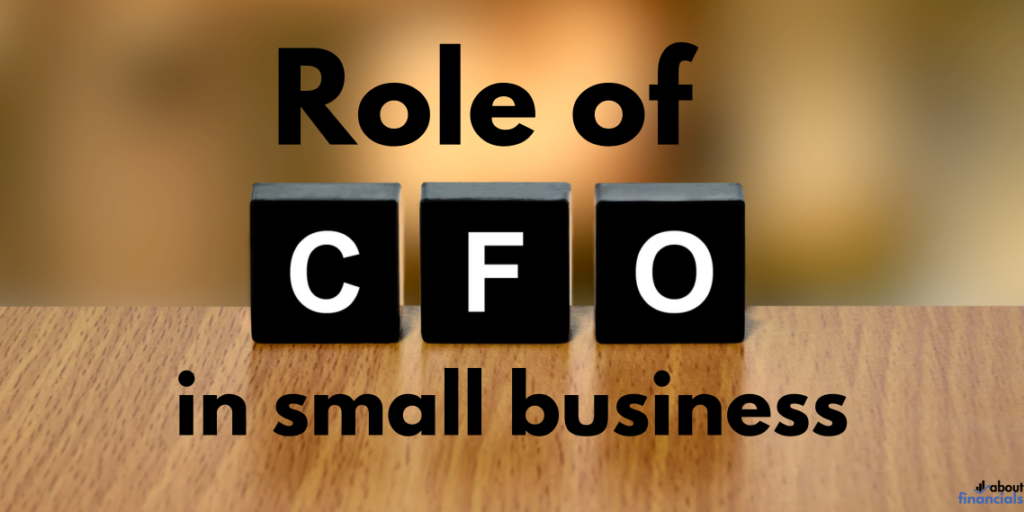The CFO isn’t just about numbers, they are like a financial partner and leader who helps the small business with smart money decisions. This article explains the role of CFO in small businesses and how they help make good financial choices for success.
What’s a CFO?
At its core, a CFO is like the financial architect of a company. They do more than just deal with numbers – they’re like strategic thinkers who manage finances to make sure the company makes as much money as possible. They know all the financial details that run the business world, and they wear many hats – they’re like financial strategists, risk managers, and visionary leaders, all rolled into one.
Why a CFO matters for small businesses
You might think CFOs are only for big companies, but they’re just as important for small businesses. Actually, a CFO’s role in a small business can go beyond just handling money. When a small business is starting out, a skilled CFO can be like a guiding force, helping it through tough times and helping it succeed.
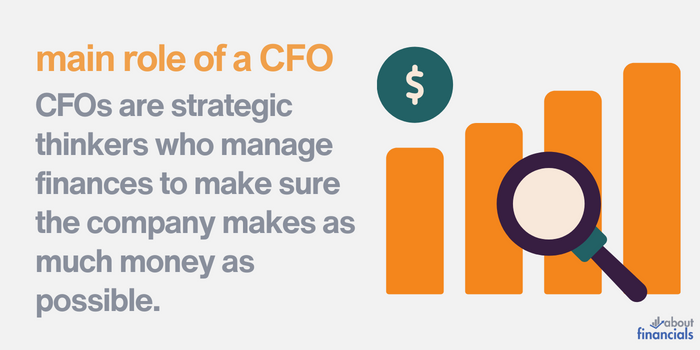
A CFO isn’t just a number-cruncher. They’re like guardians of the business’s financial health, they help it grow, and they protect it during challenging times. They’re the strategic partner that every small business needs to navigate unknown territory, make smart choices, and come out on top.
Role of CFO in a small business – 32 focus areas
1. Making financial plans
In managing the money stuff, the CFO plays a big role. They plan out financial strategies and decisions that shape where the small business is headed. But it’s not just about keeping the books balanced – they’re like financial experts who make every financial choice with care and purpose.
2. Creating budgets
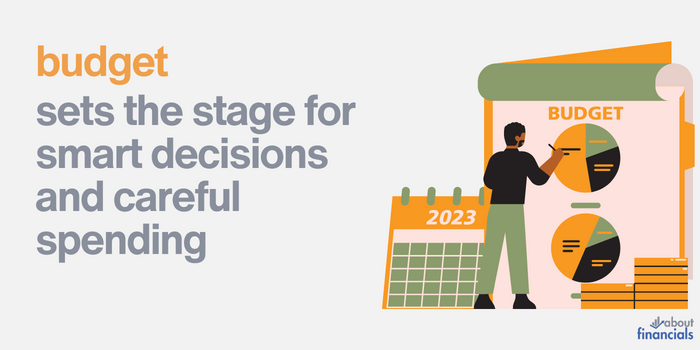
The CFO starts by creating a budget that lays out how the business will spend its money. By looking at data and predicting the future, they figure out what the business will need financially, where the money will go, and what goals are realistic. This sets the stage for smart decisions and careful spending.
3. Playing with numbers
Behind the scenes, the CFO uses financial models to play out different situations. These models help the business see what might happen with different strategies. They show things like how much money the business might make, how it might grow, and how much it might need to spend, so the business can plan confidently.
4. Keeping an eye on money
Money coming in and going out is like the heartbeat of a business. The CFO watches it closely to make sure everything is in balance. They make sure the business has enough money for what it needs and help it avoid running into money problems.
5. Making sure things run smoothly
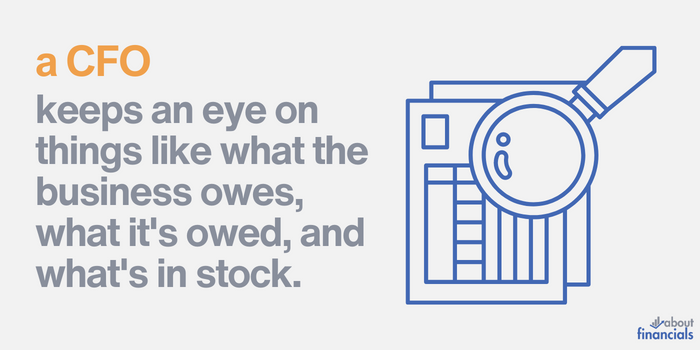
Managing money smartly is a big part of what a seasoned CFO does. They keep an eye on things like what the business owes, what it’s owed, and what’s in stock. This helps keep things flowing well without any hiccups.
6. Sharing financial information
Being open and honest about money is really important. The CFO creates detailed financial reports that show how the business is doing. These reports help everyone see how the business is performing and make good decisions.
7. Figuring out performance
Numbers tell a story, and the CFO knows how to read it. They do more than just show the numbers – they figure out what they mean. They look for trends, understand differences, and explain complex numbers in simple ways. This helps decision-makers refine their plans and make things even better.
8. Handling risks
In business, surprises can happen. The CFO spots things that might go wrong financially, like sudden changes in the market or new rules. They come up with ways to handle these risks so the business stays safe.
9. Making sure the legalities
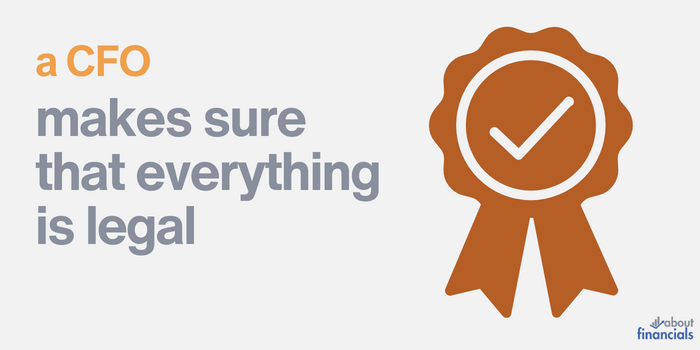
Rules and laws are like a roadmap for money matters. The CFO makes sure the business follows these rules and has insurance to protect against unexpected problems. This helps build trust and keeps everything steady.
10. Getting money
Whether it’s getting investors, loans, or other funds, the CFO is like the conductor of a money orchestra. They build relationships with people who can give the business money and work out the terms that match the business’s goals and financial health.
11. Debt management
Deciding how much money should come from debt and how much from investors is a tricky task. The CFO looks at things like how risky it is, how much the business owes, and how much it wants to grow. Finding the right balance keeps the business growing while staying financially healthy.
12. Thinking ahead
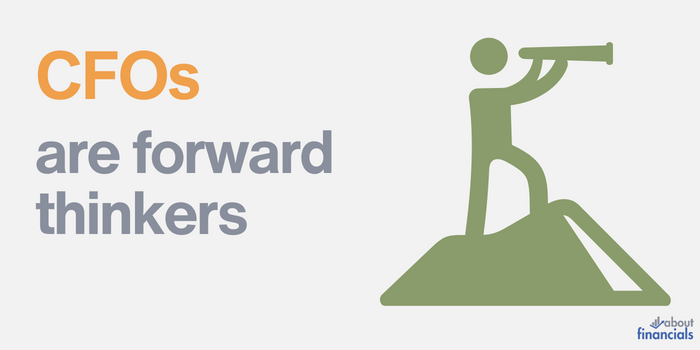
CFOs are forward-thinkers. They help create long-term financial plans that match the business’s goals. By predicting what the business will need, estimating how much things will cost, and thinking about changes in the market, the CFO guides the business toward success over time.
13. Deciding on opportunities
When the business has new chances, the CFO steps in as an expert evaluator. They figure out if new projects or investments are worth the money by looking at how much the business might earn in return and what risks it might face.
Every investment the business makes is like an investment in its future. The CFO looks at all the options, figuring out how much the business might earn.
The CFO’s Strategic Role
In the dynamic world of business, where finances and vision come together, the CFO plays a crucial role. They connect financial wisdom with big-picture strategy, guiding the business in the right direction.
14. CFO and senior management
The CFO isn’t limited to finances – they’re key members of the leadership team. Working closely with the CEO and others, they add a financial perspective to important discussions. Their insights combine money matters with business goals, ensuring plans make sense and can work.
15. Planning for the long run
The CFO’s strategic skills reach far into the future. They help create financial plans that match the business’s growth. By predicting what’s needed, estimating resources, and considering changes in the market, the CFO leads the business toward lasting success.
16. Evaluating opportunities
When there’s potential for growth, the CFO steps in as an expert evaluator. They check if new projects or investments are worth it by looking at how much the business might earn back and what risks might be involved.
17. Analyzing ROI
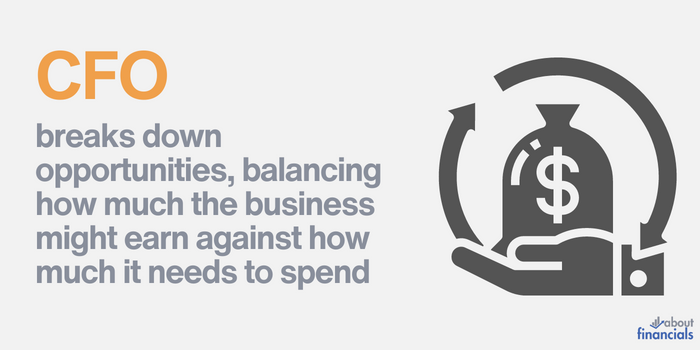
Every investment shapes the business’s future. The CFO breaks down opportunities, balancing how much the business might earn against how much it needs to spend. Their calculations guide smart decisions about where to put resources for the best results.
18. Managing the financial team
As the guardian of financial health, the CFO leads a team that makes plans come to life. Their leadership goes beyond numbers, creating a culture of financial responsibility and teamwork that moves the business forward.
The CFO takes an active role in nurturing talent within the financial team. They identify strengths and skills, allowing each member to contribute effectively.
19. Recruitment and training
A strong finance team starts with the CFO’s keen eye. They pick professionals who understand both numbers and strategy, building a team that can handle all the different parts of the job. Training keeps the team growing and ready.
The CFO’s vigilant selection process ensures that new team members not only possess technical proficiency but also align with the business’s values and vision. This strategic approach to recruitment results in a well-rounded team poised for success.
20. Delegating tasks
A skilled CFO knows how to assign tasks to the right people on the finance team. This makes sure each member contributes their best, boosting productivity and allowing the CFO to focus on bigger plans.
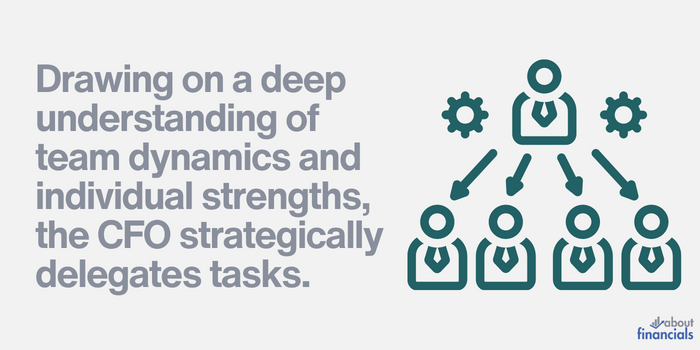
Drawing on a deep understanding of team dynamics and individual strengths, the CFO strategically delegates tasks. This optimization of roles enhances efficiency, fosters individual growth, and empowers the team to collectively achieve more.
21. Working across departments
The CFO doesn’t just stay in the finance corner. They work with other parts of the business, from marketing to sales. By bringing financial smarts into these discussions, they help everyone make decisions that make financial sense.
Collaborating seamlessly with various departments, the CFO ensures that financial considerations are integrated into every aspect of decision-making. This holistic approach results in well-informed choices that align with both operational goals and fiscal prudence.
22. Being a financial advisor
The CFO also acts as a financial advisor to other department heads and executives. They use data-driven insights to show how different choices might affect the business financially. This helps everyone make informed decisions that match the business’s financial goals.
23. Technology in finance
In a time when data and technology rule, the CFO embraces digital changes to stay strong. Knowing tech is a must, helping the CFO navigate complex situations, find insights, and lead financial progress.
The CFO embraces technology as an essential tool for efficient financial management. They leverage advanced software and analytics to gain insights, streamline processes, and adapt to the rapidly evolving business landscape.
24. Using advanced systems
The CFO leads the way in adopting and using ERP systems. These powerful tools streamline financial tasks, from accounting to inventory. They bring all the financial data together, giving a clear view and making operations smoother.
25. Data analytics
With tools for business intelligence, the CFO digs into data to find patterns and trends. Visual displays and interactive reports show how the business is doing financially, making it easier to react to changes in the market.
26. Automating routine work
The CFO saves time by automating repetitive financial tasks. Invoices, expenses, and payroll can all be automated, reducing mistakes and freeing up resources for important plans.
Recognizing the power of automation, the CFO streamlines routine financial processes. This not only minimizes errors but also empowers the finance team to focus their energies on strategic initiatives that drive the business’s growth.
27. Analyzing integrated data
By automatically gathering financial data, the CFO builds a complete picture. Algorithms process numbers, uncovering differences and connections that guide important choices.
Through automated data aggregation, the CFO constructs a comprehensive financial landscape. Analyzing the interplay of financial data uncovers crucial correlations and trends, enriching the decision-making process with actionable insights.
The CFO also uses predictive analytics to see what might happen financially. By looking at past data and market trends, they can predict outcomes, helping the business plan for any situation.
28. Dealing with market changes
Market ups and downs are familiar to the CFO. They study trends, assess risks, and make strategies to protect the business. Their ability to adjust financial plans helps the business weather tough times.
The CFO’s expertise shines during market fluctuations. Through careful analysis of trends and risk assessment, they develop strategies that shield the business from uncertainties, ensuring stability and resilience.
29. Managing costs
When the economy gets uncertain, cutting costs is important. The CFO finds places to spend less, keeping the business financially strong even during tough times.
During economic uncertainties, the CFO employs a strategic approach to cost management. By identifying areas for optimized spending and resource allocation, they safeguard the business’s financial strength and agility.
30. Keeping an eye on rules
Financial rules are like a map for money. The CFO watches changing regulations, making sure the business follows the right path. Remaining vigilant, the CFO monitors the ever-evolving landscape of financial regulations. Their commitment to compliance ensures the business’s financial practices adhere to legal requirements and ethical standards.
31. Changing with regulations
When rules shift, the CFO adjusts financial processes to avoid problems. They make sure the business follows the law and stays on track. With a proactive approach, the CFO swiftly recalibrates financial processes in response to regulatory changes. This agility ensures the business continues to operate smoothly within the bounds of updated regulations.
32. Preparing for challenges
The CFO plans for the unexpected. They create strategies to handle potential disruptions, from supply chain issues to market slowdowns. This helps the business react quickly when things get tough.
The CFO serves as a strategic architect of preparedness. By developing contingency strategies, they equip the business to respond effectively to unforeseen disruptions, safeguarding its ability to pivot and thrive.
Final Thoughts
From financial planning and analysis to strategy and technology, the CFO’s touch is everywhere in the business’s journey. They connect dreams with reality, use data for decisions, and turn problems into successes.
As small businesses move forward, the CFO shows the power of financial know-how, flexibility, and smart planning. Their impact goes beyond balanced books – it’s about the long-lasting success of the businesses they support.

